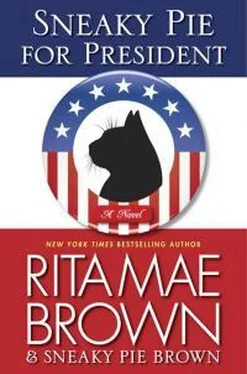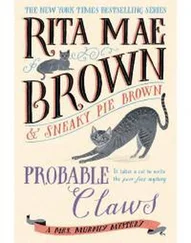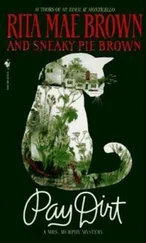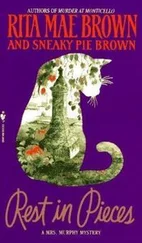“H-m-m.” Tucker pondered this. “But most humans don’t know how to plow with animals anymore.”
“They can learn.” Sneaky was adamant. “They’ve done it for thousands of years, not just centuries. They can do it again.”
“But what about animal abuse? Farming with animals requires years of training. It’s better if humans are born to it. For example, a human really has to know horses. It’s not something they can get out of a book.” Tally joined in the discussion, forgetting to be angry with the gray cat.
“I expect a group like this OSE can teach people about old-time plowing, too, and in every farming community there has to be someone who remembers the old ways.”
“Sneaky, you’re talking about someone who is one hundred years old.” Pewter looked up at her human, raptly pushing around the mouse.
“There are people who learned from their grandparents, their fathers. There are still enough vital people who know how to do it.”
“What about the equipment? The collars, the traces? Only the Amish can make it now. Rigging a plow team costs about eight hundred dollars. The show harnesses cost a fortune, but we’re talking about work teams.” Tucker liked the sound of jingling when horses were hitched up. She’d heard it when carriage drivers competed.
“This would open up fantastic opportunities for other people to work with leather,” said Sneaky. “And those businesses also wouldn’t be dependent on oil or electricity. Maybe they’d need some electricity for a sewing machine, but returning to some of the old tried-and-true methods would save a lot of energy. And you’d get to hold what you make,” the tiger cat added.
“So?” Pewter didn’t quite get that.
“How can you hold a computer screen? And who wants to hold a bunch of papers? If you make something, that’s real.”
“Hey, Sneaky, it may be real, but think of all the money that’s traded every day, and no one holds one dollar bill.” Tally wasn’t as unsophisticated as she sometimes appeared.
“Problem Number One.” Sneaky’s pink tongue stuck out for a second. “If you can’t hold it, smell it, bite it, how do you know it’s real?”
“You forgot sex. Humans act like money is the same as sex, but can they have sex with it?” The Jack Russell’s eyes brightened.
“Don’t be vulgar.” Sneaky frowned. “Did you already forget about elevating the discourse?”
“I thought you were interested in economics,” Pewter countered. “Porn is probably the biggest industry in the world, but I don’t get it.”
“Why pay to see people carry on?” Pewter was mystified.
“It’s a human thing,” Tucker said. “We can only carry on when we’re in heat. They’re in heat all the time. No time-out to relax—yet another flaw in their species.”
“It must be exhausting,” Tally said. “But I’d be willing to try.”
“You need to be spayed,” Pewter said sharply. “You’re getting mental.”
“I said I will get you. Now I’ll get you twice.”
“I’ll live in constant fear, I’m sure.” The cat sniffed.
“There is no human heat cycle,” Tucker said before asking, “Is that why they bred past their food supply?” Sneaky appreciated the corgi’s acumen.
Tucker thought aloud. “They have no sense. They haven’t a clue when it will be a good harvest or bad. They can’t monitor their breeding, and they’ll breed beyond the water supply, too. They can’t help it.”
“What a horrible thought,” Sneaky whispered. “They will consume the earth. I’d never really thought about how they have no breeding time-out.”
“Takes a long time for a human to be self-sufficient. Six years, I reckon,” the corgi said. “But the way it is now, six years is useless. Few kids perform chores in the field. Young humans aren’t allowed to work when they are nearly adult. So they’re a drag on everyone, and on themselves, too. Even when they’re eighteen, they have trouble. Just fifty-four percent of humans between eighteen and twenty-four have jobs now. What are the other half doing? How can they learn a trade? Just like dogs, humans need to work. I need to herd cattle. You need to catch vermin, all three of you are vermin killers. We have serious jobs. We start early in our lives.”
“I have to think more about all this,” Sneaky softly said to Tucker.
“You know those books she reads,” the corgi said, nodding at their human. “There used to be wars and famines, big famines in China, millions starving to death. Terrible diseases. The human population was kept in check. Now, with medicines and technology and industrialized agriculture, millions upon millions survive.” Tucker continued, “As to war, they will always have them, but they’re little ones, strategic bombings rather than worldwide conflicts.”
“That sounds awful,” yipped Tally.
“Well, Tucker, I can hardly discuss any of that in my campaign,” said Sneaky. “It will send humans right over the edge.”
“Perhaps, but your idea about farming the old way makes sense. That would get more humans and animals working on the land. Maybe they could regain their natural balance. They’d be paid labor, but they’d be out in the fields plowing and harvesting. Instead of seeing twenty combines over a field, you’d see hundreds of people and horses. The big firms would alter their technology to save energy. It really wouldn’t be slower if they hired enough people. And people need to work. When they’re out of work, all sorts of terrible things happen.” Tucker kept going. “If they’re working outside, maybe they will respect nature more, including their own natures.”
“That’s a stretch,” Pewter opined.
“Is it any further than this OSE thing?” Sneaky considered. “I’ve got a lot to think about and a lot to find out. First I need numbers, and then we have to figure out how to get more support. And then how to get even our human to see this.”
“She’s not bone stupid,” Tucker replied.
“Sometimes she’s darn close.” Tally didn’t say this maliciously. “How come you called her Mother? You hardly ever do that,” the dog asked Pewter.
“She tries. She wants to be loved.” The cat held up one paw, unleashed one sharp claw. “And don’t think you can brownie me.”
“I said I would get you. That doesn’t mean I can’t be curious.”
“Curiosity killed the cat,” Sneaky interjected into the agreement, repeating the old saw. “Least you didn’t say that.”
“Dog eat dog.” Pewter half laughed. “I could amend that. Cat eat dog.”
“Lame,” said Tally. “If you can’t come up with anything better than that, shut up.” The dog growled, but not loudly.
Pewter took the bait. “ Um-m-m , dog in a manger.”
“Cat got your tongue,” Tally snapped back. Trading animal clichés as insults.
“Dog days,” Pewter said.
“Pussyfooting.”
“Sick as a dog.”
“Pussy Galore,” Tally shouted.
“I like that one,” Pewter said with satisfaction. “That’s a character in an old James Bond movie.”
“Still used a cat word.” The dog defended her choice.
Tucker, sleepy now, mumbled, “Imagine the English language without all the contributions of animals. Humans would be so much poorer without us, wouldn’t they? Can any technological phrase, you know, like ‘boot up’—carry the meaning or weight of ‘bell the cat’?”
The four animals felt much the better for this discussion.
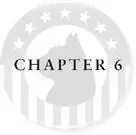
Fish Tales
“Row, row, row your boat, gently down the stream. Merrily, merrily, merrily, merrily, life is but a dream.” Tally warbled under the delusion that her singing pleased everyone.
Читать дальше
